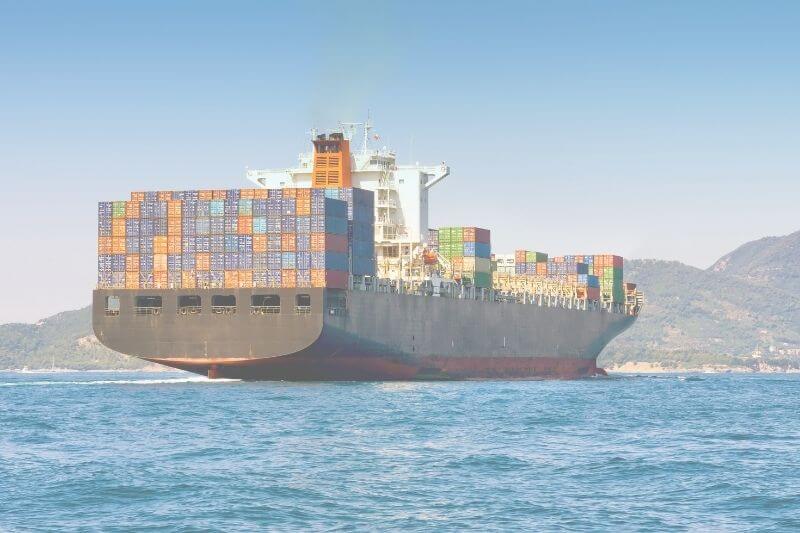
How to hire maritime freight: import and export
Import and export operations require prior planning from the interested parties taking into account all costs and necessary care.
One of the factors that causes the greatest impact on the final cost result is international freight, due to the high prices and high degree of risk involved.
Among the modes of transport used, maritime freight is the most popular among foreign trade players.
In today’s text we will discover the advantages of the maritime modal and how to hire this type of transport.
Why is maritime freight the most used?
The choice of maritime modal is determined by a series of factors duly assessed.
Some points such as dimensions, gross weight, type of product, transit time, among others, make the maritime option the most suitable for international transport.
So, let’s find out now which factors make maritime freight the most suitable in most cases.
Price
A central point that determines the amounts charged by logistics operators to carry out freight is the price of fuel.
In international operations involving countries at a very long distance from each other, the only two options applicable in most cases are transport between ports or airports.
The air operations costs tend to be more expensive due to the high volume of fuel spent taking into account the volume of transported cargo.
Proportionally, a much smaller amount of fuel is spent to transport cargo in the maritime modal, making this option the least expensive for the freight contractors in most cases.
Capacity
As you may already know, maritime transport takes place mostly through container ships.
This makes the maritime modal the one that represents the largest volume of cargo handled, compared to other modes of transport.
To give you an idea, the Antonov 225 aircraft, which unfortunately was destroyed in the conflicts between Russia and Ukraine, was the largest cargo plane in the world, that was capable of transporting up to 250 tons over long distances.
A container ship, by its turn, supports an average of 230 thousand tons at its maximum capacity.
What are the means of contracting maritime freight?
The international transport market is one of the most fierce in the world economy.
Shipowners and freight forwarding companies compete daily for every cargo handled in the world.
For importers and exporters there are at least three (3) main possibilities for contracting this type of freight.
Marketplace platforms
This is undoubtedly the most recent and innovative method of contracting international maritime freight.
Thanks to the digitalization of foreign trade in general, several platforms have emerged with the aim of facilitating access for shippers to the best freight options available on the market.
In short, the cargo owner registers his demand on the platform by entering all the necessary data – route, type of goods, Incoterms, cargo data, values etc.
After submitting the demand, international freight providers registered on the marketplace are notified and search for options that meet the previously informed need.
As soon as they receive the requested conditions, each supplier sends their offer via system and waits for a response.
After the shipper receiving all offers on the deadline stipulated, he can then decide which of the offers sent best meets his objectives.
All virtually, no need for email and phone calls.
Cargo agents
The best known and most used way of contracting international maritime freight is through freight forwarding companies, that are specialized in international freight.
Normally, they do not have their own truck, ship or aircraft fleets, however, they work together with the owners of these equipment to obtain better negotiations on rates and conditions for cargo handling.
These companies are true intermediaries and have a lot of knowledge of the international logistics scenario, as well as maintain offices and strategic partners spread around the world.
Not by chance, it is very common for Brazilian freight forwarders to use the service of a freight forwarder from another country in the necessary logistical movements in the country of origin of an import, for example. And vice-versa when Brazilian agents provide operational support for loads that “belong” to another agent.
In order to hire this service, it is necessary to contact a salesperson representing the agency company, who will provide all the necessary information to comply with the required procedures.
Shipowners
Shipowners are companies that have their own fleet of ships and their own containers, so they are able to offer the best rates on the market.
The big issue is that it is necessary to move a recurring volume of cargo, of extremely expressive weight and quantity to be able to carry out a direct negotiation with these big players in international logistics.
To ensure that trips on their ships are always made at full capacity, shipowners require in their negotiations that a predefined amount of space be regularly serviced by the shipper.
This type of contracting is chosen by large industries that regularly and daily sell a vast volume of containers and, therefore, are able to negotiate without the need for intermediaries.
So, what about you? Did you enjoy knowing more about the types of freight contracts?
We provide a regular content here made especially for you who wants to know and be on top of everything that happens in foreign trade and international logistics.